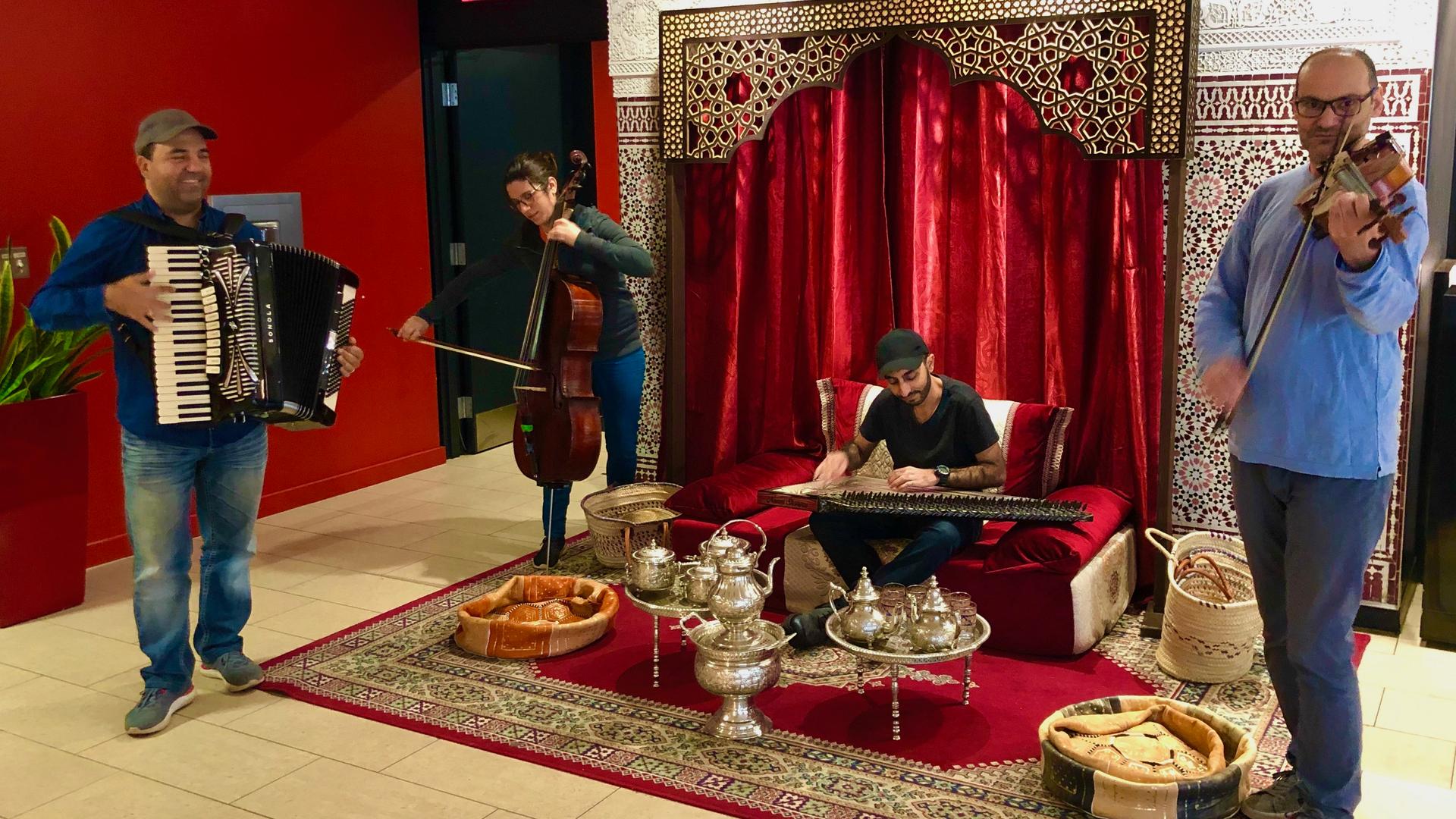About 100 residents of Selection Cherbourg, a retirement home in a Montreal suburb of Québec, gather to hear a quartet called Taraf Syriana, who play music from folk traditions from Syria, the wider Middle East and the Balkans.
The crowd oohs and aahs when Naeem Shanwar demonstrates how his instrument, a 78-string kanun, can be plucked like a harp or strummed like a guitar.
For many in the audience, it was the first time they had seen the Arabic instrument, he said.
Shanwar taught kanun at Al-Baath University in Homs, Syria, before moving to Montreal.
Related: Jordanian musicians worry that their national orchestra could be shuttered
Taraf Syriana’s members first met in jam sessions around Montreal, and they come from a variety of musical backgrounds. This was the ensemble’s second gig at the retirement home.
During the pandemic, funding became available in Québec for musicians to play shows for seniors, supporting performers who lost their normal audiences and income while providing entertainment to isolated residents.
Some of the most deadly outbreaks in Canada spread in Québec’s long-term care homes, and many seniors have spent long months in limited contact with friends and family.
Retirement residences for people in better health have also had cases and public health restrictions eased slowly.
Related: ‘I Silenti’ gives a voice to those who died in the Romani genocide
Earlier on in the pandemic, residents occasionally watched performances from the balconies of their own rooms.
But vaccinations have recently soared in Québec, with the highest rates among seniors — and that has allowed some to resume more normal activities like this.
For many, it’s a huge relief.
“It’s fantastic. Ben oui. Because we were closed, we were locked into our apartments for quite a while.”
“It’s fantastic,” said Resident Ann Turpin, one of the seniors able to gather for the performance in Brossard. “Ben oui. Because we were closed, we were locked into our apartments for quite a while.”
Turpin and her friend, Valérie Parent, say 99.5% of the residents of the building are vaccinated.
“We’re looking forward [to] dancing,” Parent said.
The head of programming at the home, Mariela Rolon, said staff organized virtual programming over the past year — even virtual musical performances. But gatherings of this size only became possible in late July.
Even the musicians say they are still getting used to playing in public again.
“By staying home, it’s just something […] a click in the mind that it takes a bit to refresh. It’s not that we lost how to play, but it’s just a bit new.”
“By staying home, it’s just something […] a click in the mind that it takes a bit to refresh. It’s not that we lost how to play, but it’s just a bit new,” said accordionist Sergiu Popa, who is originally from Moldova.
“Now, we’re even more excited to give to people, to exchange the energy,” said Swiss cellist Noémy Braun, who trained in classical music.
The group also includes Omar Abou Afach, a classically trained violinist and violist who once played with the Syrian National Symphony Orchestra.
At different times, the concertgoers moved with the music in their chairs — a good sign, the group agreed.
Shanwar, the kanun player, said that sometimes he prefers to play to the senior residents more than other audiences.
“They respect our music,” he explained. “They know more. They can maybe listen [to] all kinds of music.”
